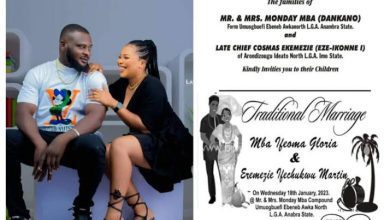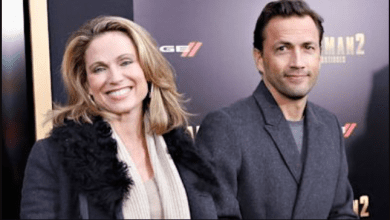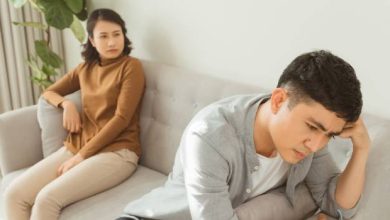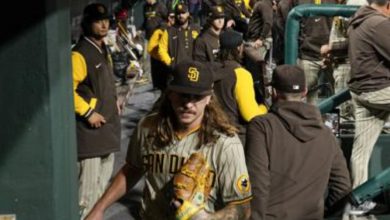
80-year-old Awala: “Filmmaking moulded and gave me clear mind.”
Rev. Bayo Awala, 80, a seasoned TV producer with the now-defunct Nigerian Broadcasting Corporation, speaks with ALEXANDER OKERE about his upbringing in the creeks and career as a playwright.
Did you raise yourself in a city?
The name Awala is Itshekiri in origin rather than Yoruba. My father, Dibofun, was a native of Warri North’s Jakpa. When his father passed away, his mother brought him to Ilaje, which is in the Ondo State region. He was widely known there, where he had grown up.
We are Itshekiri by birth. That’s where I was conceived. There, I went to school and grew up. There was no secondary school in the region as of 1956.
In order to attend a secondary school, I had to go to Sapele, Delta State. When I was born, births were only recorded in family records since there was no public record of them.
Growing up back then was enjoyable. Up until last year, Igo, the community where I grew up, lacked a primary school (2022). We had to make our way down the coast to a different settlement with a primary school. Igo, Molute, and Awoye were the three settlements that existed. We didn’t have any fields to play in back then since there wasn’t any land.
The seaside was the only location that was regarded as land. The only open ground at the school I attended was used for morning devotions; there was no field for students to play on.
Did your parents go to school? They’re the kind of parents that let their kids roam free?
My mother had no formal education; many parents did not want their daughters to attend school because they believed it was a waste of time since they would end up smoking fish in the kitchen. Education was not seen as being important at the time.
But before his father passed away, my father had some level of schooling. I recall that the district officer at the time, a white guy, would often ask my father to translate for the Olugbo people in English (of Ugbo kingdom in Ilaje). My father thus had some schooling and had lovely penmanship.
Back then, some men had many wives. Your father had how many wives?
Oh, my father had wives, but he married one of them when she was really elderly, so he was unable to conceive with her. Therefore, just four of his wives bore him offspring.
What number of kids did he have?
I believe he had 17 kids. It was lovely; even now, you wouldn’t realize that my father had more than one mother since we were all raised together and under the same roof. My father lived on his own. His wives—aside from the youngest, who wasn’t pregnant for him—had their own.
Was she permitted to go because he was too old to be able to make her pregnant?
Yes. She was wed by his oldest son.
How did your father manage to raise seventeen kids? Was he wealthy?
At that time, owning a business was customary for men, and his was a fishing operation. My father was at the top of the food chain and had six boats that he used to fish in the Atlantic Ocean.
He resembled an executive director. The beauty of it is that when those he collaborated with grew, he assisted them in starting their businesses and hired additional personnel. He continued doing it until he was too old. My dad was a priest at the local church as well.
Have you known him since you were young?
At the age of nine, I moved away from home to attend a school in a different community. After a smallpox outbreak in 1948, the school was forced to close.
My father told me that until I was old enough, he would not let me go back to school. I started primary school when I was nine years old.
I had to go to a town named Ilepete to live with an uncle since the school was distant from my home hamlet. Since then, I’ve only seen my family once for a month.
Did it important to you that you started primary school when you were nine years old?
I was simply glad to be going to school, that’s all. I wasn’t sure whether I was too old. But something took place. Before the smallpox incident, I had already attended school for two years. We were expected to complete eight years, from Infant One to Two and from Standard One to Six, back then. However, I received a double promotion to Standard One during my first year at Ilepete, which really helped me.
After finishing secondary school, did you pursue any kind of postsecondary education?
No, I didn’t after finishing secondary school since my father wasn’t as wealthy as he formerly was at the time. His relative was from a Ugbo royal family. Despite the fact that I am Itshekiri, my great-mother grandfather’s was a princess from the Ugbo kingdom. My father thus wished to assist his Ilaje-based comrade in succeeding him as oba. It was a difficult competition, and since my father had supported him financially, he lost everything as a result. He was thus helpless when I completed my secondary education.
My mother, though, was a skilled fisherwoman. When she went fishing, she often came back with a boat stocked with fish. She provided funding for her kids’ secondary schooling. My mother and her siblings phoned me after I finished high school and wanted to send me to the UK, but I turned them down since my other brothers had to wait until I was done with high school before they could start college.
So I promised my mum that I would work hard in school, enroll in a university in Nigeria, and aid with my brother’s education. By God’s grace, I assumed responsibility for at least three of my five brothers’ educations.
A portion of the money utilized by one of my brothers to go overseas was funded by me.
Does it imply that you didn’t enroll at a postsecondary institution?
I didn’t go to college there. At the Sapele institution I attended, Zik’s College of Commerce (later renamed Zik’s Academy), the late Prof. Sam Aluko was a teacher. Because of Prof. Aluko’s influence, the principal continued reminding us on the assembly grounds that every student had to become a professor.
Thus, my goal after finishing high school was to work as a professor of economics. I played football once I arrived in Lagos. I was a great football player. I was approached by a few teams to play for them, but I turned them down because I wanted to pursue a career in academia rather than sports.
Football, I thought, would hurt me. I was so preparing for college by studying. I passed two topics at my first sitting. I was hooked into Lagos life, so it was frustrating. Later, I resolved to make sacrifices in order to pass the General Certificate Examination and enroll in college.
I had a terrible disease in October 1965 that rendered me paralyzed. I needed crutches. I stopped attending to the office at the Nigerian Broadcasting Corporation where I was employed at the time due to my sickness.
When a friend of mine visited me in March 1965, he persuaded me to join him to meet another friend at Christ Church Cathedral Primary because the Federal Ministry of Education was holding training sessions there for secondary school teachers who would need to be proficient in theater. As soon as I arrived, the school’s principal informed me that I should be attending the theatre school.
I had no idea what theater was, yet he predicted that I would become a great dramatist. We saw the buddy we had traveled there to see, and then we headed home. That acquaintance visited me at home after the training was through to inform me that the same principal had instructed me to report the next day. I got into drama that way.
I refer to myself as an accidental thespian since I had always envisioned myself as an Economics professor.
After that instruction, I started a theatre group called Neighbourhood Players with Soji Simpson, one Abidemi Olatunji, Clifford Thomas, and myself. This further ingrained me in drama.
Did you start out in television production in that way?
In 1968, 1969, and 1970, I first began working on TV projects. I received an invitation when the Village Headmaster TV program debuted in 1958 because I was collaborating with a friend who was a drama artist from the University of Ibadan at the time. I received an invitation to the audition but declined because I was not interested in television production but rather stage production.
However, (the late) Ambassador Segun Olusola, the man behind the Village Headmaster, sent a colleague to ask me to meet with him in 1970. I was still employed by NBC in Ikoyi at the time.
I visited him on Victoria Island because I thought he was interested in a joint production. He inquired as to my interest after stating that he had a position in broadcasting reserved for me. He claimed that I would create NBC TV drama that was equivalent to drama performed on stage. I assured him that I would consider it.
The following day, when I arrived at the NBC, I brought up the matter with a few coworkers who told me it was an excellent opportunity and encouraged me to take it, especially since I was an accounts clerk there. I faced significant difficulties as a clerk. My superiors disapproved of me but couldn’t explain why. They fired me once, then brought me back, then fired me again, and so on.
Since I had been employed as a temporary employee for three years, the director general of the NBC actually insisted that my employment be made permanent. That’s how NBC hired me on as a full-time employee.
Have you gotten in touch with the late Ambassador Olusola about his offer?
At some point, I agreed to it, and he assured me that the necessary transfer would be made, but my employer refused to move me to NBC TV. I was actually moved from Lagos to Benin (City, Edo State).
Did you get medical attention for the injury that required you to use crutches?
The period of using crutches to walk was over in 1966. How was it resolved? When a medical board was about to be established to determine whether I was still fit to walk, a coworker informed me that I would need to go to the office. I used crutches to get to the office. In less than a week of working there, someone came up to me and invited me to a pastor’s visit to his church.
Even though I initially believed there was no God, I consented to go. I went to the crusade. What do you know? I was spiritually healed when I went back home without my crutches.
What age did you tie the knot?
I married when I was 37 years old. I have two or more children (laughs). I had difficulties and worried that I would not be able to care for my children if I had many of them. At the National Theatre, I met my wife. My wife stepped in when I was standing with one of my actresses. The actress said that she was a gorgeous girl as soon as she entered. I decided to marry her on that day since I thought she was so gorgeous.
How do you remain active at 80?
According to the Bible, spiritual activity yields more rewards than physical exercise. I believe that I am extremely blessed by heaven. I don’t feel old at all, and I take myself seriously, yet someone cautioned me about pushing myself too far since I believe I am still young. But I give God praise. Looking back, I can clearly see God’s influence on my life. I think he was working behind the scenes even when I didn’t know him.
I should not be surprised when I get 80 since I have lived long enough. Though I am aware of what individuals who are 70 or 80 years old look like, I was unaware that I was getting close to that age. Despite the fact that I don’t feel my age, I am really 80 years old.
One day, a buddy dropped by to see me at home. I got out a bottle of Johnnie Walker since I used to drink a lot of wine back then. I immediately stopped drinking after experiencing stomach ache. I visited a hospital, where it was found that I had an ulcer. I therefore stopped drinking anything other than water. Bread is my favorite food.
I was astonished to learn that I had an ulcer. I subsequently found out that I had rheumatoid arthritis when I informed you I was using crutches. Only aspirin was used to treat me, and taking aspirin for an extended period of time may induce an ulcer. I gave up drinking after I discovered I had an ulcer.
How do you like to unwind?
I don’t go to events. I’m not a womanizer. No, I don’t drink. I spend the whole day in my studies alone. I have no pastimes.
Certainly not the football you alluded to previously.
I just recently considered building a backboard and basket in my yard so I could work out in the morning, but God has been kind. Some people assume I’ve been working out when they see me, but I don’t.
Nobody is without regrets, so the saying goes. Do you have any regrets about the things you did or did not do when you were younger?
Yes, I did say that I regretted not becoming an economics professor, but the truth is that I doubt I would have been happy in that position. I relished contributing to the creation of a play. It was amazing; it was like giving an inanimate object life. Drama undoubtedly had a part in how I was feeling.





Hmm
Yh
Inspirational
Wonderful
Ok
Hmmm
Hmm
Amazing
Mtchw
Really
Nawaoh
Okay
Huh okay if it is so
Okay
Nice one
Nice
Great
That’s quite impressive
Good
Wow
Good one
Good
Awesome
Hmmm true life story
The story motivates me
Good
Fine
Good
Cool
Very Interesting. He had a fun childhood
Evening
Cool
Nigeria
Wow
Good oh
Ok
That’s awesome
Noted
That is awesome
Okay
Okay
It’s time
Poor editing
Good
Great
Filmmaking
Great
Wow
Nice
Impressive
Amazing
Hi
Ok
Hmm
Good
Interesting story.
Okay
Mice
Nice
God is wonderful
So wonderful god
Ok
Really
Hmmm
Ok
Quite the story
Okay
Power of mentorship
Bad
Great
Wonderful
My goodness
Great
Brilliant
Excellent
Impressive
Good
Impressive
Cool
Ok
Cool
Houses
Glory
Cool
Ok
Mamana
Tou
Yu
Ok
Tor
Doubles mind
Omoh ehnn .. chai
Hmmm
Mad oo
Good enough
Still good 👍
Hahahahahaha
Okay
Nice
Nice
What
Something is wrong somewhere
Nice one
Poor editing
Okay
Okay
Great work sir
May you live long sir
Okay
Nice one